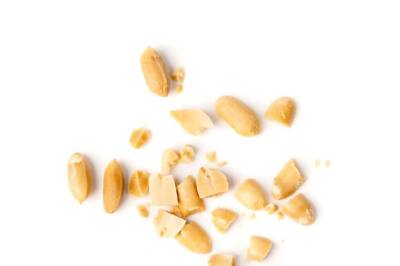
views
Damascus: At least four people died in protests across the Arab world demanding political change and better living standards on Friday, the Muslim day of prayer and a rallying point for the wave of unrest in the region this year.
Syrian security forces killed at least three protesters in a Damascus suburb on Friday, witnesses said, and one man also died as Omanis demanded jobs and better wages.
Elsewhere in the Arab region protests were largely peaceful. In the Yemeni capital Sanaa, tens of thousands took to the streets in separate demonstrations both for and against President Ali Abdullah Saleh.
Saleh told a rally he would sacrifice everything for his country, suggesting he had no plans to step down in the face of weeks of sometimes violent protests that have brought his 32-year rule to the verge of collapse.
"I swear to you I will sacrifice blood and soul and everything precious for the sake of this great people," he said.
Bahrain released a prominent blogger but detained several other people, including a pro-opposition doctor, while in Saudi Arabia hundreds of Shi'ites staged peaceful protests in the kingdom's oil-producing east in support of fellow Shi'ites in Bahrain and political freedoms at home, activists said.
Witnesses in the Damascus suburb of Douma said the three killed were among at least 2,000 people who chanted "Freedom. Freedom. One, one, one. The Syrian people are one" when police opened fire to disperse them from Municipality Square.
An official source said via state news agency SANA that "armed groups" on rooftops had opened fire on citizens and security forces gathered in Douma, killing and wounding dozens.
Activists said Syrians had taken to the streets after Friday prayers in Damascus, Banias on the coast, Latakia port and the southern city of Deraa, where unprecedented protests challenging President Bashar al-Assad's 11 years in power began last month.
In his first public appearance since the demonstrations began, Assad had declined on Wednesday to spell out any reforms, especially the lifting of a 48-year-old emergency law that has been used to stifle opposition and justify arbitrary arrests.
"Thousands gathered today in Deraa, spontaneously, after Friday prayers in Deraa from all the mosques, rejecting the president's speech," political activist Abu Hazem told Al Arabiya television from Deraa.
Hundreds of Omani protesters seeking jobs and better wages clashed with security forces in the industrial town of Sohar and a man died after being hit by a rubber bullet, a government source said. Protesters threw stones and the troops fired in the air to disperse them.
Bahrain released blogger Mahmood al-Yousif but detained several other people, including a pro-opposition doctor, opposition sources said.
The tiny island kingdom's Sunni rulers have stepped up arrests of cyber activists and Shi'ites, with more than 300 detained and dozens missing since security forces broke up pro-democracy street protests earlier this month.
Al-Yousif, who for years has promoted anti-sectarianism under the slogan "No Shi'ite, No Sunni, Just Bahraini", was detained on Wednesday and released late on Thursday.
"I'm back home now with my family. Everything is fine," he told Reuters by telephone. "I've been treated well enough. They investigated me but didn't find anything."
Opposition sources said Abdul Khaleq Al Oraibi, a doctor at Salmaniya Hospital, Bahrain's biggest, had also been detained.
Demands Mubarak be put on trial
Egyptians rallied in Cairo, Alexandria and other cities demanding ousted President Hosni Mubarak and other former officials be put on trial.
Mubarak was toppled on Feb. 11, but reformers who drove the protests that brought him down are concerned by what they see as the lingering influence of elements from his administration.
Activists called for Friday's rally to "protect the revolution". One banner held aloft in Cairo's Tahrir Square read: "The people want corruption put on trial to save the revolution."
The reformers want tougher steps to recover assets they say Mubarak and others took from the state and seek deeper change in Egypt which is now ruled by the Supreme Council of the Armed Forces, led by the defence minister who served under Mubarak.



















Comments
0 comment